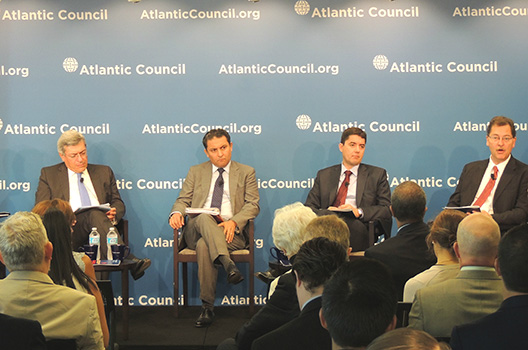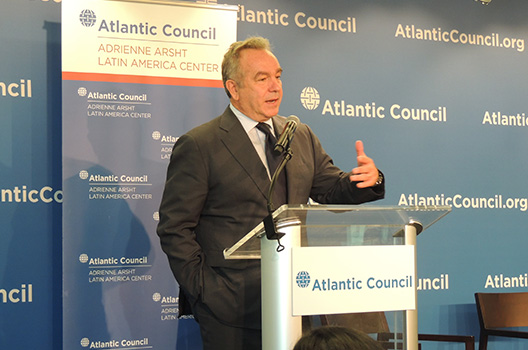 In September 2015, Xi Jinping, President of the People’s Republic of China, will make his first official visit to Washington, D.C. As one of the most anticipated meetings between the United States and China, the agenda will surely include pertinent negotiations on solutions to bilateral and global issues, such as cybersecurity and climate change. One issue, however, is unlikely to be on the table: China’s increasingly close, and remarkably changing, relationship with Latin America and the Caribbean.
In September 2015, Xi Jinping, President of the People’s Republic of China, will make his first official visit to Washington, D.C. As one of the most anticipated meetings between the United States and China, the agenda will surely include pertinent negotiations on solutions to bilateral and global issues, such as cybersecurity and climate change. One issue, however, is unlikely to be on the table: China’s increasingly close, and remarkably changing, relationship with Latin America and the Caribbean.
The Atlantic Council’s Adrienne Arsht Latin America Center hosted an event on September 16, 2015, addressing the timely implications of the growing presence of China in Latin America. The event also focused on the Center’s newly released report titled China’s Evolving Role in Latin America: Can it Be a Win-Win? written by one of the panelists, renowned Mexico-based China Expert Enrique Dussel Peters, a Professor at the Graduate School of Economics at the National Autonomous University of Mexico (UNAM).
Following opening remarks from the Center’s Director, Peter Schechter, the Center’s Deputy Director Jason Marczak moderated the discussion between expert panelists, and an audience Q&A session. In addition to Enrique Dussel Peters, the panel included Martín Berardi, President of the Latin American Steel Association; Bertrand Delgado an Emerging Markets Strategist at HSBC; and Marcelo Ninio, Washington Correspondent and former Beijing Correspondent at the Folha de S. Paulo newspaper. Applying diverse areas of expertise, they discussed the implications in the region from the increased Chinese trade agreements and foreign direct investments. The overall consensus was that Latin American countries will certainly need to engage differently with China by creating a strategy for long-term economic growth. The goal is for each country to be focused on improving their own human capital and industries, heading towards consumption and service-oriented trade. Although the panel agreed that the current relationship is non-symmetrical, especially since some countries are vulnerably in need of Chinese capital, it is crucial to ensure greater transparency, strengthen respect for rule of law, and focus attention to local concerns.
As explained by Dr. Dussel Peters, the newly released report illustrates the likeliness that economic ties will continue to intensify between China and Latin America. The report also provides an in-depth look at five key countries in Latin America with a unique context for partnerships with China. Lastly, the report outlines five recommendations that could bolster mutually beneficial long-term economic development. However, Dr. Dussel Peters warns that “unless China and Latin America analyze effective benefits and costs, increasing misunderstandings will undermine long-term relationship.”
Kurt Campbell, Chairman and Chief Executive Officer of The Asia Group and former Assistant Secretary for East Asian and Pacific Affairs at the US Department of State, offered closing remarks in which he framed President Xi’s September 2015 visit to Washington and reinforced the necessity for dialogue and partnerships with China. Former Assistant Secretary Campbell further suggested supporting institutions that create deeper cultural ties between US and China. “Both nations must work together on projects that support uplifting people in Latin America and the world at large,” he affirmed. Campbell argued that although the US has played a significant role in the peace and stability in Asia, it is in the United States’ interest to continue strong cooperation with China.

